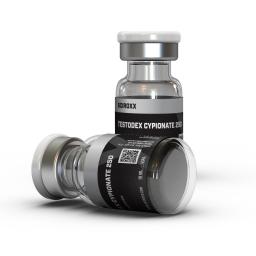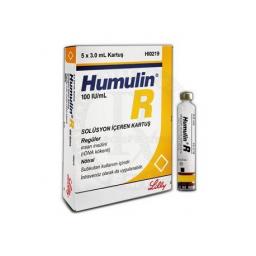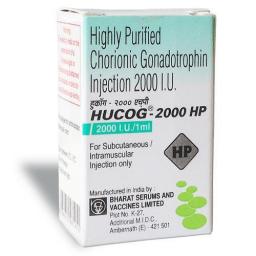Comments from researchers at the Jean Hailes Foundation for Women’s Health
Introduction
The Foundation strongly advocates that women and health professionals take a balanced, evidence-based and informed approach to health. All risks and benefits should be taken into perspective when considering the use of HRT for menopausal symptom relief.
For example, having more than two standard drinks per day, being overweight or obese, having your first child over the age of 35 or going into menopause at a later age are higher risk factors for breast cancer than taking HRT.
The context of the study
|
HRT has been used to effectively relieve symptoms for women for whom quality of life is affected by moderate to severe symptoms. However, recent media on HRT has raised concerns which need to be evaluated and understood in context.
The data presented in the Medical Journal of Australia on June 2, 2008 is observational and can not determine cause and effect. Trends are observed, but the reasons for these trends can not be determined from this data. For example the data also showed that HRT use declined from 2001 to 2002 – in the year before the US Women’s Health Initiative report linked HRT to breast cancer. Rates for breast cancer also fell between 1998 and 1999, yet at this time HRT use was actually increasing.
The International Menopause Society who held their latest congress in Madrid, Spain two weeks ago, confirms that for women aged 50 to 59, HRT remains the first line and most effective treatment for menopausal symptoms. For women in this age group there is no significant increase in risk in using HRT – in fact the benefits outweigh the risks.
All the precautions mentioned in the study only refer to women who still have a uterus who were taking combined oestrogen and progestin – it is quite clear from the best available data that taking oestrogen alone in women who have had a hysterectomy may actually reduce breast cancer risk.
This study also does not cover the marked improvement in quality of life which HRT gives to symptomatic women and neglects to point out that by stopping HRT, a woman will lose the benefits such as freedom from symptoms, and potential protection against heart attack, fracture and colon cancer.
Current guidelines
Current guidelines recommend that women who take HRT for menopausal symptoms take the lowest effective dose for the shortest time period to alleviate symptoms.
HRT can be stopped at any time with the guidance of your medical practitioner. Once you’ve stopped treatment any increase in breast cancer risk lessens over time and is lost within five years. The Foundation recommends that each woman discuss her decision about taking HRT regularly with her health practitioner or whenever she has any concerns.
Frequently asked questions
What does this study mean for women?
It is of no significance for healthy women taking hormone therapy at the time of menopause for 2-5 years for the relief of menopausal symptoms. For women on longer term treatment, when breast cancer risk may begin to rise, the findings reinforce the advisability of regularly reviewing the reasons to continue or not.
Can the decline in breast cancer be attributed to the decline in HRT use?
The decline in breast cancer can not be conclusively attributed to the decline in HRT use. Similar declines have been observed in some countries but not in others. There is data for only one year after the US-based Women’s Health Initiative (WHI) report and it would be essential to see longer term data. Women in the US who stopped HRT after the WHI trial was terminated showed no decline in breast cancer diagnosis in the subsequent three years.
Do I need to stop taking HRT?
There is no indication from this study for stopping HRT used for symptom relief in younger healthy women.
What is the risk of breast cancer relating to HRT?
For otherwise healthy women under 60 years of age taking combined oestrogen and progestin therapy there is a small increased risk of breast cancer after five or more years of treatment.
What other risk factors can affect my chance of getting breast cancer?
Drinking more than two standard drinks per day, being overweight or obese, having children later in life or going into menopause at a later age can all put you at an increased risk of getting breast cancer.
How often do I need to see my doctor to review my use of HRT?
Best practice guidelines for treatment of the menopausal woman indicate an annual review. However, if concerns exist more regular review is reasonable.
What else can I take to relieve my symptoms?
For women who experience menopausal symptoms and have their quality of life impacted on or compromised, there are a number of approaches to manage their symptoms. These include education and awareness of symptoms, management of stress, regular physical activity and a healthy diet – resources are available on these options online at www.jeanhailes.org.au or by calling the Jean Hailes Foundation for Women’s Health tollfree on 1800 151 441.
Many women find that simple measures, such as wearing lighter clothing or keeping room temperatures low at night, can make a big difference. These changes won’t eliminate all symptoms, but can make them manageable. Some women may find complementary therapies helpful.
If hot flushes continue to make your life miserable, talk to your health practitioner about the different types of hormone therapy currently available – many of which come in much lower doses than the medication used in the WHI study.
Where do I go for further information?
The Jean Hailes Foundation has a variety of up to date information and free health resources to help you make informed health choices about menopause and other health issues.
Top Steroid Products Sales
Testo-C 1250
|
Humulin R
|
HCG Gen-Shi 5000IU
|


